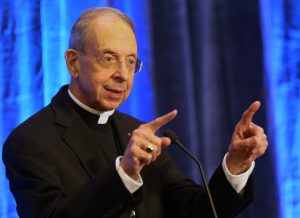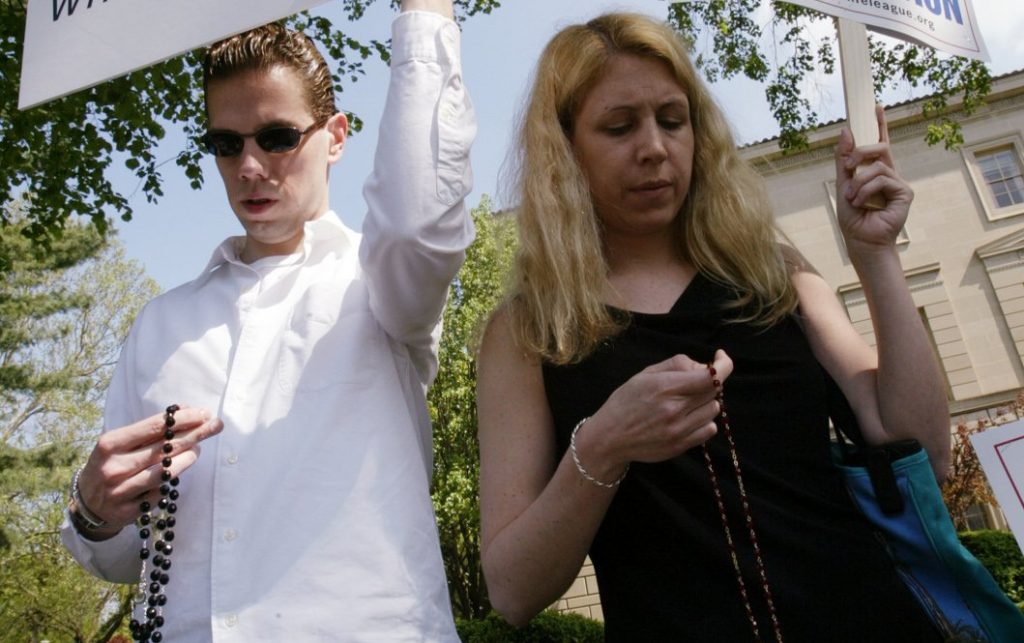Be careful what you wish for.
That may be one conclusion to draw from the recent midterm elections when it comes to the topic of abortion.
After the Supreme Court reversed its 1973 decision calling abortion a constitutional right, tossing the issue back to the states, abortion became one of the important issues on voters’ minds leading up to the November’s midterm elections.
The issue was now in front of the voters, which many had hoped for, relying on polling that Americans were uncomfortable with abortion on demand and open to some restrictions. Yet in six state elections (including an earlier referendum in Kansas), voters opted to support legalized abortion, often eschewing even restrictions that Roe had allowed.
In California, Proposition 1 enshrining abortion in the state constitution won 70% of the vote, a majority that obviously included many of the state’s Catholic residents.
The defeats, following so closely on the heels of what was perceived to be a high court victory, have provoked a period of reflection on where the pro-life movement is right now. In the 50 years since Roe, opponents to abortion have dominated one political party. They have tested the high court’s resolve to defend Roe v. Wade by sending a stream of state laws restricting the procedures and hampering those who offer them. Ultimately they spurred a transformation of the Supreme Court itself.
Yet the irony of all this activity — as well as a nationwide network of pregnancy centers to help women — is that we don’t seem to have made as much headway in the battle for hearts and minds. We got people to make a choice, and they didn’t choose us.
In an at times remarkable speech by Archbishop William Lori at November’s national assembly of the nation’s Catholic bishops following the election, he challenged his brothers about the “need to take stock.”

“Indeed, the demise of Roe was a great victory,” the newly elected vice president of the bishops’ conference said, “but it will be a pyrrhic victory if we fail to win the minds and hearts first and foremost of our fellow Catholics.” Not the voters. Not the undecided. But “our fellow Catholics.”
Quoting “The Gospel of Life,” Archbishop Lori said the consistency of an authentically pro-life Catholic position is “an unfailing determination to respect, protect, love and serve life, every human life, at every stage, and in every situation.”
The consistency of the Church’s teaching, however, is fractured not only by our political divisions — with each party failing in their determination to respect every human life — but also in its own ministries. Said the archbishop: “So that we might speak credibly in a polarized society, we must continue our work of lessening, even eliminating, any divisions in our own house between our pro-life advocacy and ministry, and our ministries of charity and justice.”
This division is, in my experience, more one of stereotypes and political posturing than of the beliefs of people in those ministries themselves. The anti-death penalty advocacy group Catholic Mobilizing Network clearly sees the link between pro-life and anti-death penalty. So do many pro-life volunteers, who also understand that helping the undocumented and the poor means addressing pressures that lead women to choose abortion.
For Archbishop Lori, “a church which does more than any other institution except the federal government to address poverty, healthcare, education, housing, employment, addiction, criminal justice and domestic violence cannot remain silent about abortion.” Likewise, he said, a church committed to protecting the unborn “cannot ignore the deep social problems that push women towards having an abortion,” which includes calling men “to their responsibilities as husbands and fathers.”
Fifty years ago, the Supreme Court created a new right to abortion and mobilized an army against that decree. This year, another Supreme Court rejected that right, perhaps mobilizing another army.
Lobbyists for these armies hurl stereotypes at one another: Pro-lifers hate women and only care about babies till they are born. Abortion supporters believe the only life worth saving is the mother’s and disregard the obvious humanity of the “fetus.”
A consistent ethic of life that eschews the stereotypes and seeks to protect both women and their children, not only till birth but after, is a potential meeting ground between these two armies. And if Catholics need to hear this message first and foremost, if they need to see the fundamental consistency in the Church’s teachings, then Archbishop Lori is certainly right when he says, “The months since Dobbs have demonstrated that we face a long and difficult struggle.”
This next stage may not be about marches and slogans, but about an intentional and active living out in our pews and parish halls “an unfailing determination to respect, protect, love and serve life, every human life, at every stage, and in every situation.”

